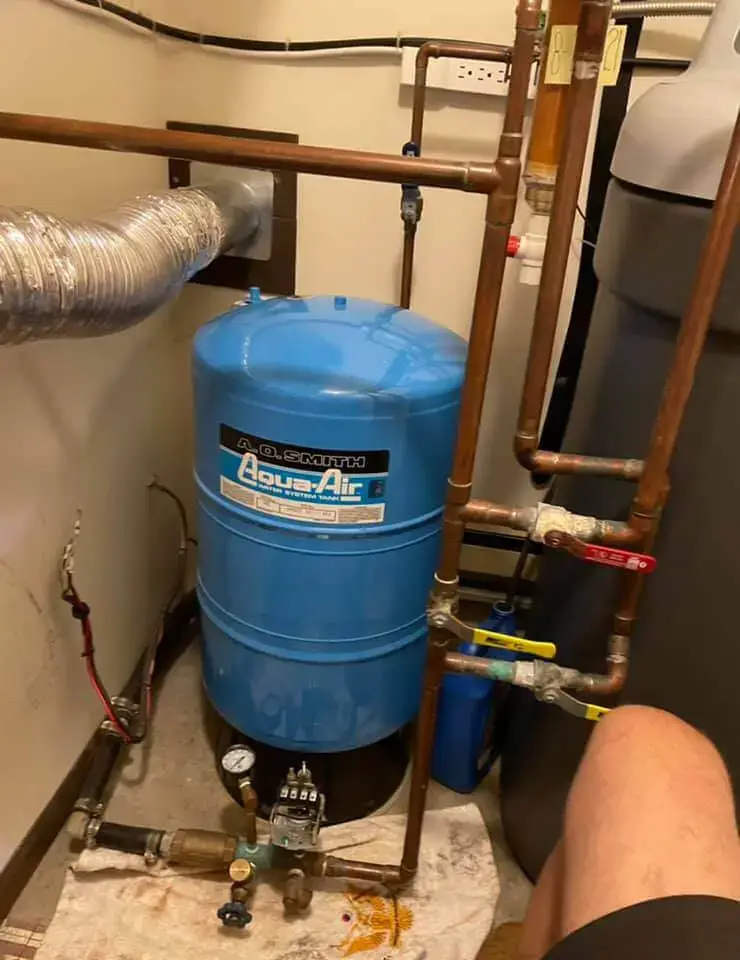Cutting-Edge Water Filtration Systems: Supporting Healthier Living Atmospheres
Understanding the Secret Elements of Effective Water Filtration Systems

Significance of Water Purification Equipment
Water filtering systems play a vital duty in making certain access to risk-free and tidy drinking water by efficiently eliminating contaminations and contaminants. These systems are important in resolving the growing concerns over water high quality and the potential health dangers related to eating contaminated water. By using various filtration mechanisms such as reverse osmosis, triggered carbon, and UV sterilization, water filtration systems can successfully eliminate harmful compounds like bacteria, infections, hefty steels, and chemicals from the water system.
In addition, water filtration systems assist to boost the taste and odor of water by getting rid of chlorine, debris, and various other toxins that can impact its quality. Water Softeners. This enhancement in water quality not just makes it much more palatable yet also urges people to consume alcohol an ample amount of water daily, promoting far better hydration and overall wellness
Sorts Of Filtration Parts

Physical filters are developed to physically strain out contaminations from the water. These filters can be made from materials like ceramic, carbon, and even sand, and they work by trapping particles bigger than the filter's pores as water travels through.
Chemical filters use various chemical procedures to remove contaminants from the water. Instances include activated carbon filters, which adsorb impurities, and turn around osmosis membrane layers, which make use of pressure to different impurities from the water.
Organic filters make use of living microorganisms like algae or bacteria to damage down natural matter and pollutants in the water. These filters are commonly utilized in wastewater treatment plants or natural water filtration systems.
Understanding the different kinds of filtering components is essential for picking one of the most appropriate water filtration system for details filtration demands.
Function of Debris Filters
Sediment filters play a critical duty in water filtering systems by efficiently recording solid bits suspended in the water. These filters are typically the initial line of defense in a filtration system, getting rid of larger bits such as sand, silt, dirt, and rust before the water moves with finer filtering phases. By trapping these sediments, the filters prevent them from reaching downstream parts, hence extending the life-span and effectiveness of the entire system.
Overlooking this upkeep can lead to obstructing, minimized water flow, and compromised filtering effectiveness. On the whole, sediment filters are important parts that add significantly to the performance of water filtration systems.
Role of Activated Carbon Filters
Playing an essential duty in water filtering systems, activated carbon filters are crucial in getting rid of impurities and pollutants from the water system. These filters are developed to adsorb and catch a wide array of pollutants, including chlorine, volatile organic substances (VOCs), chemicals, and herbicides. The triggered carbon product has a large surface, permitting the effective trapping of contaminants browse this site through a procedure called adsorption. As water goes through the filter, the triggered carbon draws in and holds onto the impurities, ensuring that the water that appears beyond is cleaner and more secure for intake.
Triggered carbon filters are very effective at boosting the taste and smell of water by decreasing chemicals that can influence its high quality. Due to their flexibility and integrity, activated carbon filters are a vital component in making certain that water is cleansed to the highest possible requirements prior to reaching customers.
Understanding Reverse Osmosis Solutions
Reverse osmosis systems are sophisticated water purification systems that employ an advanced process to get rid of contaminants and contaminations from drinking water. These systems work by using pressure to the water, requiring it via a semi-permeable membrane. This membrane functions as a barrier, enabling just distilled water molecules to go through, while obstructing larger particles such as minerals, chemicals, and other pollutants. Because of this, the water that comes out beyond is considerably cleaner and more secure for consumption.
One trick benefit of reverse osmosis systems is their capability to get rid of a vast array of contaminants, including heavy metals, dissolved solids, germs, and infections. This makes them you could try this out very reliable in boosting the total quality and safety of alcohol consumption water. In addition, reverse osmosis systems are reasonably low-maintenance and can be mounted under the sink or in a main purification system, supplying practical accessibility to tidy water throughout the family. On the whole, comprehending how reverse osmosis systems function can aid people make notified decisions concerning their water filtering demands.
Conclusion
To conclude, efficient water filtration systems are essential for guaranteeing clean and risk-free drinking water. The crucial parts of these systems include debris filters, activated carbon filters, and reverse osmosis systems. By recognizing the function and function of each component, people can make informed decisions when picking a water filtration system. It is necessary to prioritize the high quality of water in order to advertise overall health and wellness and health.
Water filtering systems play an important function in making sure accessibility to tidy and risk-free drinking water by successfully eliminating impurities and contaminants. By utilizing various purification devices such as reverse osmosis, triggered carbon, and UV sterilization, water filtration systems can efficiently remove harmful materials like germs, viruses, heavy steels, and chemicals from the water supply.
Debris filters play a investigate this site vital function in water filtration systems by properly recording solid particles put on hold in the water (Water Treatment).Playing an important role in water purification systems, turned on carbon filters are important in removing contaminations and pollutants from the water supply.Reverse osmosis systems are advanced water purification systems that employ an innovative process to remove pollutants and impurities from alcohol consumption water